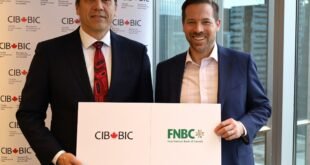Ghana’s Evolving Gold Investment Landscape
Gold has long been recognized as a reliable store of value and a safeguard against economic uncertainties, inflation, and currency fluctuations. Over the years, advancements in financial markets and technology have transformed gold into a broad range of investable assets, extending beyond physical bullion to include gold-backed securities, digital gold, mining equities, mutual funds, and complex financing instruments.
Ghana, Africa’s second-largest gold producer after South Africa, possesses significant potential to harness its gold resources more effectively. By formalizing and regulating its gold sector, the country can enhance foreign exchange reserves, stabilize its currency, create wealth opportunities for citizens, and foster deeper financial markets.
A key development in this regard is the establishment of the Ghana Gold Board (GoldBod) under the Gold Board Act (Act 1140, 2025). This institutional reform aims to centralize oversight of gold trade, particularly within the artisanal and small-scale mining (ASM) sector, which contributes significantly to Ghana’s gold output.
In a notable step, GoldBod has signed purchase agreements with nine large-scale mining companies to acquire 20% of their output. This move not only secures steady gold reserves for the state but also helps regulate supply, promote value addition, and support macroeconomic stability. Ghana’s gold exports reached an impressive nearly US$900 million in April 2025, showcasing the success of these reforms.
The Bank of Ghana’s Domestic Gold Purchase Program has amassed over US$5 billion in reserves, reflecting the country’s efforts to diversify its reserves beyond traditional foreign currencies. The commissioning of the Royal Gold Ghana Limited refinery, a joint venture between the Precious Minerals Marketing Company (PMMC) and Rosy Royal Limited, highlights Ghana’s push toward refining and value addition locally. This approach is essential for retaining more economic benefits within the country and creating skilled jobs, as opposed to exporting raw gold.
Emerging Investment Instruments
With the growing demand for more liquid and modern investment instruments, gold-backed securities have gained prominence. Among these, Exchange-Traded Funds (ETFs) offer exposure to gold prices without the need to handle the metal physically. Ghana’s proposed gold-backed ETF will be supported by the Minerals Income Investment Fund (MIIF), designed to emulate South Africa’s successful NewGold ETF, already trading on the Ghana Stock Exchange. This initiative could significantly enhance access to gold investments for local investors and institutions.
Another innovative product gaining traction is digital gold, which allows electronic ownership of gold stored securely in vaults. This model has seen success in markets like India, where platforms such as SafeGold and MMTC-PAMP have made gold investments accessible to retail investors through mobile applications and small denomination purchases. Ghana can adapt this model to promote financial inclusion and bring more retail investors into the formal gold investment space.
For investors seeking exposure to the performance of the gold sector rather than the metal itself, gold mining stocks provide an indirect but dynamic investment channel. Shares in companies such as Newmont and AngloGold Ashanti offer opportunities for dividend income and capital gains, although they carry higher risks linked to operational efficiency, market volatility, and commodity prices.
Diversified Investment Options
In addition, mutual funds and unit trusts tailored to gold investments have become attractive to investors looking for professionally managed, diversified exposure. For example, the Ghana Gold Money Market Fund (GMMF) pools investor capital into a mix of gold-related assets, offering risk-adjusted returns. These funds provide an accessible entry point for both novice and experienced investors.
Globally, similar structures like the VanEck Gold Miners ETF offer comparable benefits. A more specialized category includes gold royalties and streaming agreements, popularized in Canada. These financial instruments grant investors rights to a portion of future production or revenue from mining operations in exchange for upfront capital. This model minimizes operational risks for investors while securing long-term income streams. Although relatively new in Ghana, the introduction of such instruments could attract sophisticated institutional investors and enhance funding options for mining projects.
Conclusion
Ghana’s gold investment market presents a robust and increasingly sophisticated array of products that cater to both traditional and modern investors. By integrating physical assets with financial innovation, ranging from ETFs to digital platforms and structured royalty agreements, Ghana is positioning itself as a leader in Africa’s gold investment landscape. These developments not only empower investors but also contribute to national economic stability and the deepening of domestic financial markets.
 Info Malang Raya Its All About World News
Info Malang Raya Its All About World News




